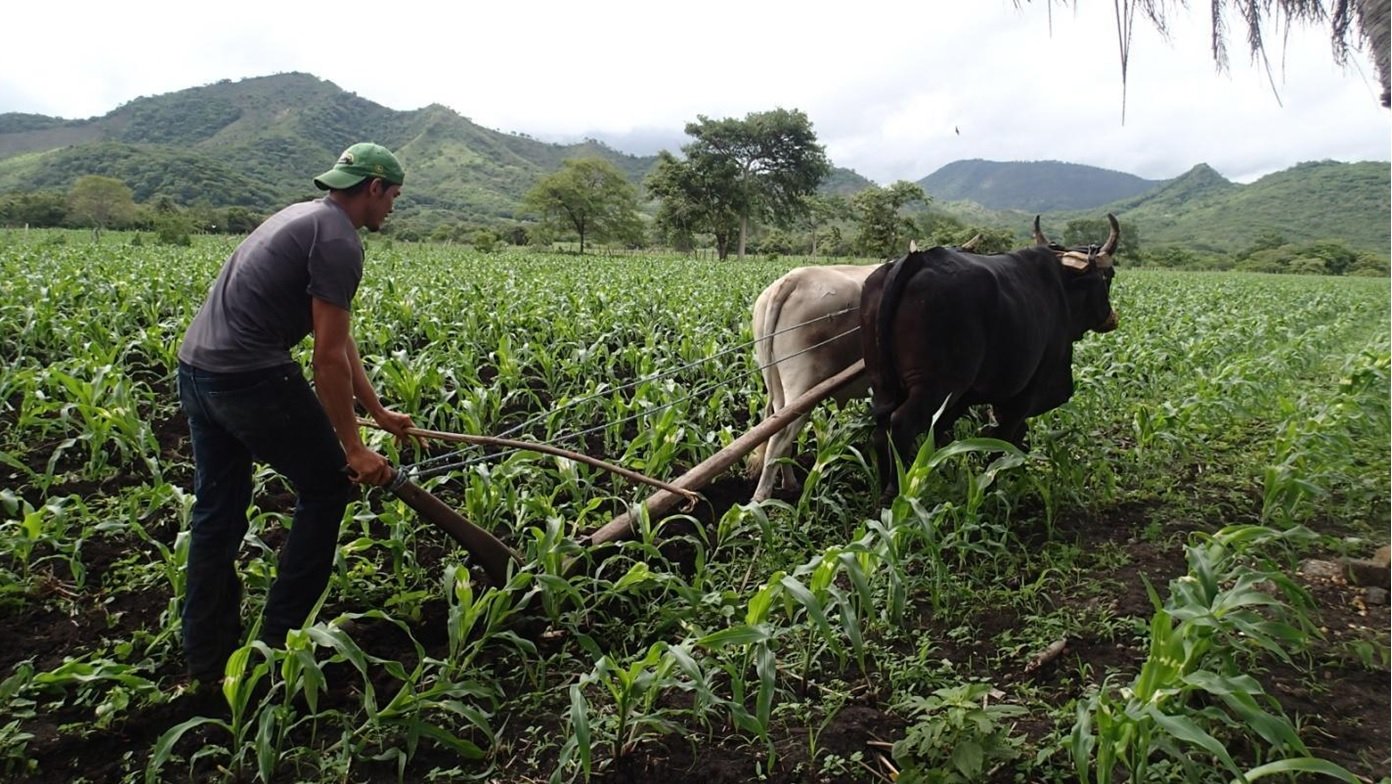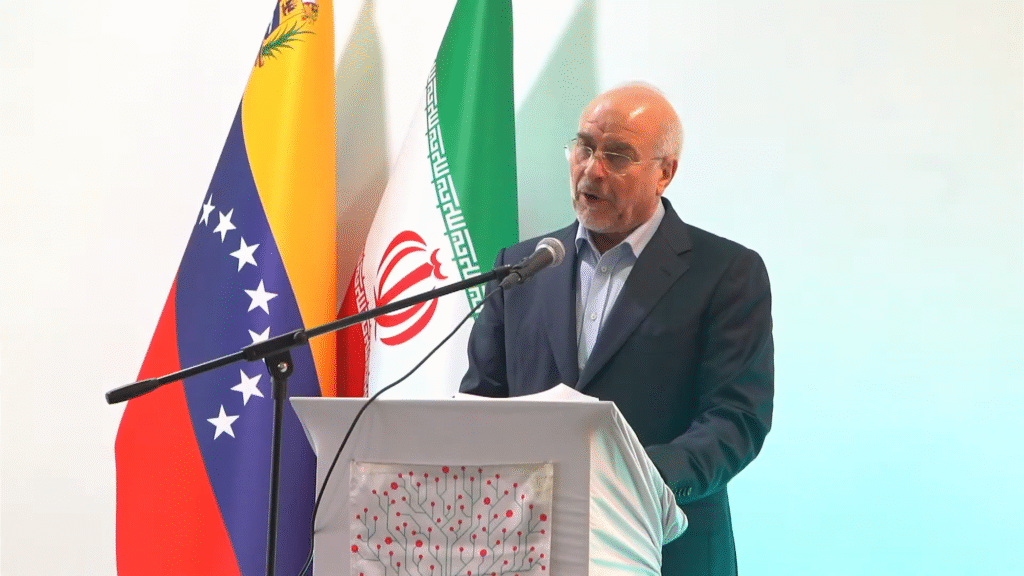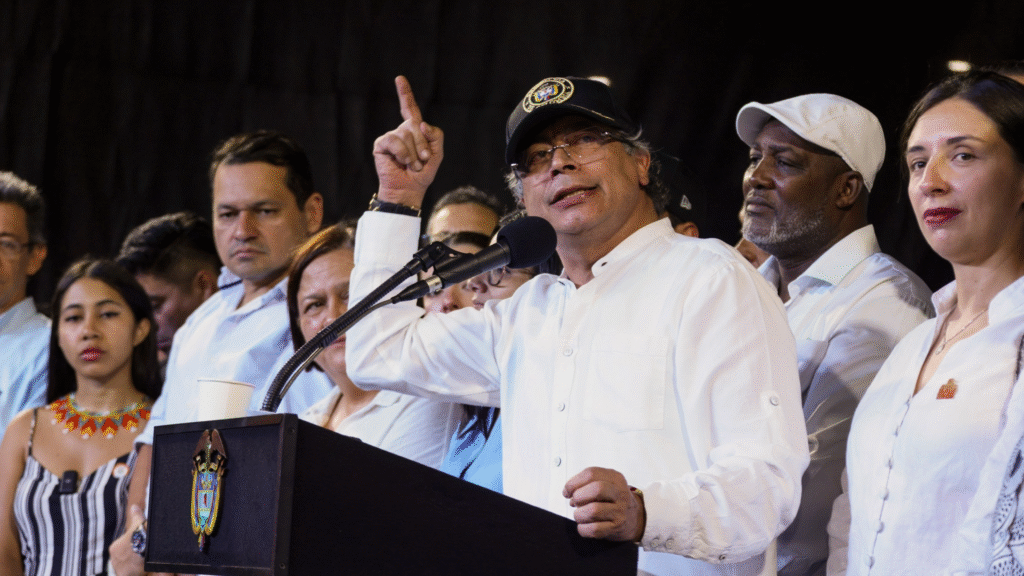Traditional field work by a pair of oxen in a (non-GMO) corn field in the northern department of Madriz. Photo: Friends of the ATC
Nicaragua has communicated its withdrawal from the FAO following the publication of a report which contained false information, disseminated in a malicious manner for political purposes in order to discredit Nicaragua’s success in food security and in its fight against poverty.
The Foreign Ministry released the following statement:
The Reconciliation and National Unity Government of the Republic of Nicaragua cordially greets you at this moment as we reference the publication of the report: The State of World Food Security and Nutrition in 2024, which was elaborated by the Food and Agriculture Organization of the United Nations (FAO). We reject it for lacking objectivity, methodological rigor, for containing false information, with an interventionist, aggressive tendency and that has been disseminated in a malicious manner for political purposes.
In the cited document, information and data was published about Nicaragua which was not authorized. Our institutions were not consulted nor did the Republic of Nicaragua validate it.
International organizations are obliged to respect Member States and the use of information should rely on previous consent and the approval of the concerned State, which has the FAO has not fulfilled, facilitating false input for negative reports which aims to discredit the Nicaraguan Government and its policies of Struggle against poverty, and in favor of Human Development and Food Security.
The FAO’s attitude is unacceptable, inadmissible and disrespectful. As a result, we’re communicating Nicaragua’s withdrawal from this organization and demand the immediate closure of its Representation and Offices in Nicaragua.
As detailed in an article published by COHA, Nicaraguan small farmers produce almost all the food the nation consumes, and have some left over for export. The Sandinista government has achieved food sovereignty across the country since 2007. The strategy to achieve this goal has been made by providing land to peasant farmers. Almost 140,000 land titles (some from land distributed during the 1980s land reform) were issued to small producers from 2007 to 2019. Women have particularly benefited from receiving proper titles to their land (55 percent) and 304 indigenous and Afro-descendant communities on the Caribbean coast have received collective titles.
Social programs that help small farmers feed themselves and their communities have imbued life in the countryside with dignity while reducing hunger. These initiatives are inspired by Augusto C. Sandino’s vision of an economy based on land-owning peasants and indigenous peoples farming in organized cooperatives—a core component of the FSLN’s Historic Program. Law 693 on Food and Nutritional Sovereignty and Security, enacted in 2009, was one of the first in Latin America to recognize the concept of food sovereignty and actually build it with government support. The commitment of the government to food sovereignty has led to dozens of programs to improve the livelihoods and autonomy of small farmers while strengthening local food systems.
90 percent of the food consumed in Nicaragua is produced within the national borders, 80 percent of it by peasants. This includes all of the beans, corn, fruits, vegetables, honey, and dairy products, while there is sufficient surplus of beans and dairy to export. Nicaragua’s food self-sufficiency is growing precisely while other developing countries are increasingly becoming agro-exporters of a few crops (e.g. pineapples or bananas) while ever more dependent on imports to feed their populations.
Read more about Nicaragua’s approach to food sovereignty here.








